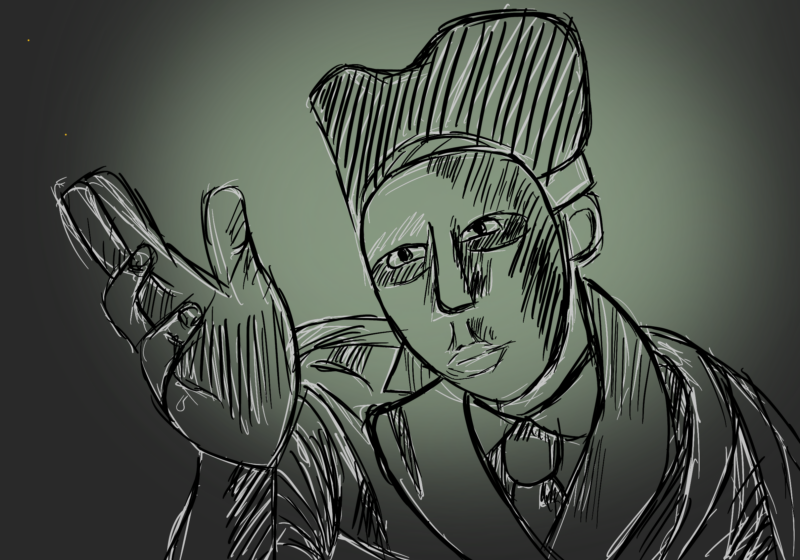
Courtesy of Drue Sokol, Photography Editor.
When it comes down to it, there is no such thing as good art.
Well, maybe that’s not entirely true. Perhaps it would be better to say that, for all intents and purposes, there is no such thing as good art. Or maybe we could say that there is, presently, no such thing as good art.
Maybe that’s not the best way to put it, either, but it’s as close as I can come to summing up my point here. Since I’m not saying this out of spite or just to screw with all of you, a linguistic digression may be in order.
The word “art” comes from the Latin “ars,” which (aside from, I hasten to point out, having nothing to do with anyone’s rear end) refers to a conception of art perhaps broader than our current one. To the Romans, the arts included not only the visual (painting, sculpture), the literary (history, poetry, prose) or the performative (stage plays), but also disciplines not now acknowledged as “arts,” such as rhetoric, military engineering and, according to at least one author, self-defense.
The word seems to have been treated as a semantic cousin of “scientia,” literally “knowledge,” and the origin of our modern word “science.” Whereas “scientia” often referred to disciplines heavily based in factual ground, “ars” referred to more skill-based pursuits, in which cerebral knowledge did not always guarantee one’s success.
Except for the essentially-frozen English expression “the liberal arts,” which still cover a number of things now more generally put under the roof of the sciences, we have since restricted the definition mostly to either visual, literary or performative skill-based pursuits, or else the visual, literary or performative aspects of other disciplines. To the Romans, politics was quite literally an art. Today, someone who defined politics as an art would be considered to speak at least partly in figurative terms.
The problem is that humans are terrible judges of these skill-based pursuits, for a number of biological and psychological reasons.
It’s not that we entirely suck at it. We can still tell a Jackson Pollock from a five-year-old child’s first adventure with a can of paint, thanks to an inherent ability to recognize the touch of conscious arrangement when comparing between two “works.” Yet, while we all seem to agree that there is such a thing as “good” or “bad” music or film or literature or what have you, we each have different definitions of what that means.
Moreover, in developing those definitions, we each make normative judgments about what is “good” or “bad,” as far as we’re concerned. This is actually a perfectly healthy social phenomenon. In fact, it may be the only level at which interpretation of artistic works is entirely legitimate.
Why? Because once we move beyond the individual, social and cultural psychology comes into being. Humans had to develop a pretty complex set of self-manipulations, self-delusions and self-denials in order to band together, and we’re not much closer to shedding them now than we were when the first cave paintings were made.
Once you’ve developed a “taste” during your formative years, you’re not only likely to stick to it through life, but thanks to the phenomenon of confirmation bias, you’re likely to think there’s something wrong with anyone whose “taste” is too different from yours.
This is why exposing young’uns to plenty of variety is necessary early on. Be it food, novels or music, the longer one waits to expand one’s horizons, the harder it is to do so. Old dogs can learn new tricks — it just becomes difficult. That doesn’t mean that we shouldn’t argue for our own views, because that can introduce the kind of doubt that leads to people discovering new things to enjoy.
It does mean, however, that if you happen to enjoy a generally disparaged piece of music, art or film, you shouldn’t feel embarrassed for it. For there to be a single definition of “good taste” or “good art,” we’d have to be, as a species, far more socioculturally homogeneous than I think I care for us to be.



